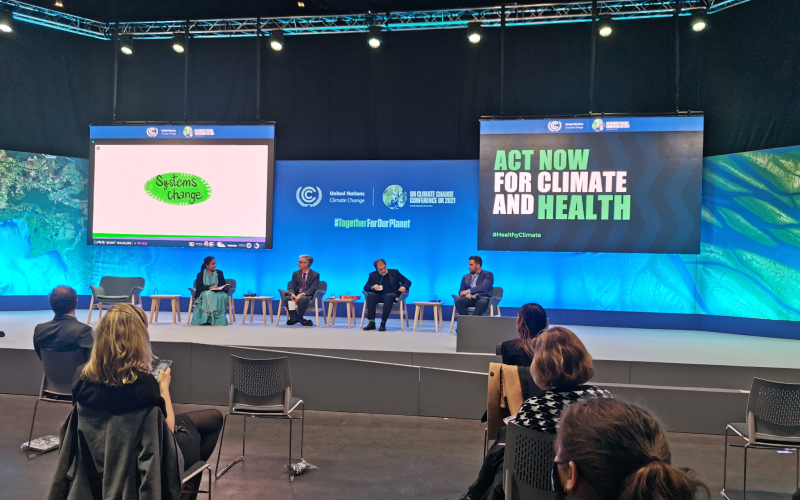You are here
- Home
- Nature day (part 2)
Nature day (part 2)

COP26 has been bringing together parties from across the world to accelerate action towards the goals of the Paris Agreement and the UN Framework Convention on Climate Change. The Open University has official observer status at COP26 and is learning from the conference to inform the university’s wider sustainability mission and inspire students and staff to take action. Here are some of the conference’s highlights, as told by our Open University observers.
COP26 Diary - 7 November: Dr Clive Mitchell, Associate Lecturer.
At the Presidency event, accelerating a just rural transition to sustainable agriculture, the culmination of a campaign for healthy food for people and planet was outlined. Farming is on the frontline of climate change, a contributor to emissions and vulnerable to the impacts of climate change. Not all farms are equal: smallholders use less water, less fossil fuels and are more nature-friendly than intensive methods – smallholders grow 33% of the world’s food on just 10% of the land.
Food waste and loss contributes 8% of global emissions – if it were a country, it would be the 3rd largest emitter. Food, across all farm systems must be part of the solution. The $0.5 trillion dollars of agricultural subsidies need to be tied to emissions, biodiversity, and health. Problems have arisen because farmers have been kept out of key decisions. Food production has tripled, at the cost of people and planet. Sustainable food systems need to protect and enhance nature, integrate food, land, and water systems, and reduce food wasted. The issue of equity arises from farmers carrying the highest risks for least profit, while investors bear the lowest risk for highest returns.
Tanya Steele (WWF UK) chaired Nature and Land Use in Delivery of the Paris Goals, emphasising the need to tackle both climate and nature together. Zac Goldsmith put nature at heart of net zero, noting that despite its importance, it receives only 3% of global climate funds. Levi Sucre Romero spoke for indigenous peoples. They coexist with nature and steward disproportionately more per head of population: politicians must protect indigenous peoples, award land, and recognise their voice.
Headlines from Nature Positive included the need to move from projects to landscapes, integrated with other land uses with overinvestment to account for likely losses due to climate impacts. There are data gaps, but we should not let them get in the way of action. Rather than singling out specific under-represented communities, prioritise communities’ issues, and organise around specific problems. Consider nature as the first-best solution, and then justify departures from that, rather than having to justify the natural solution.
Related articles
- Supporting climate action through digital education: new free BOC 26th February 2024
- Introducing a new free course - Climate Psychology: facing the climate crisis 8th February 2024
- Climate Change and machine learning - Climate Perspectives 8th February 2024
- Go Green: What is eco-anxiety? 8th February 2024
- Go Green: Fashion Fixing and Mending 8th February 2024